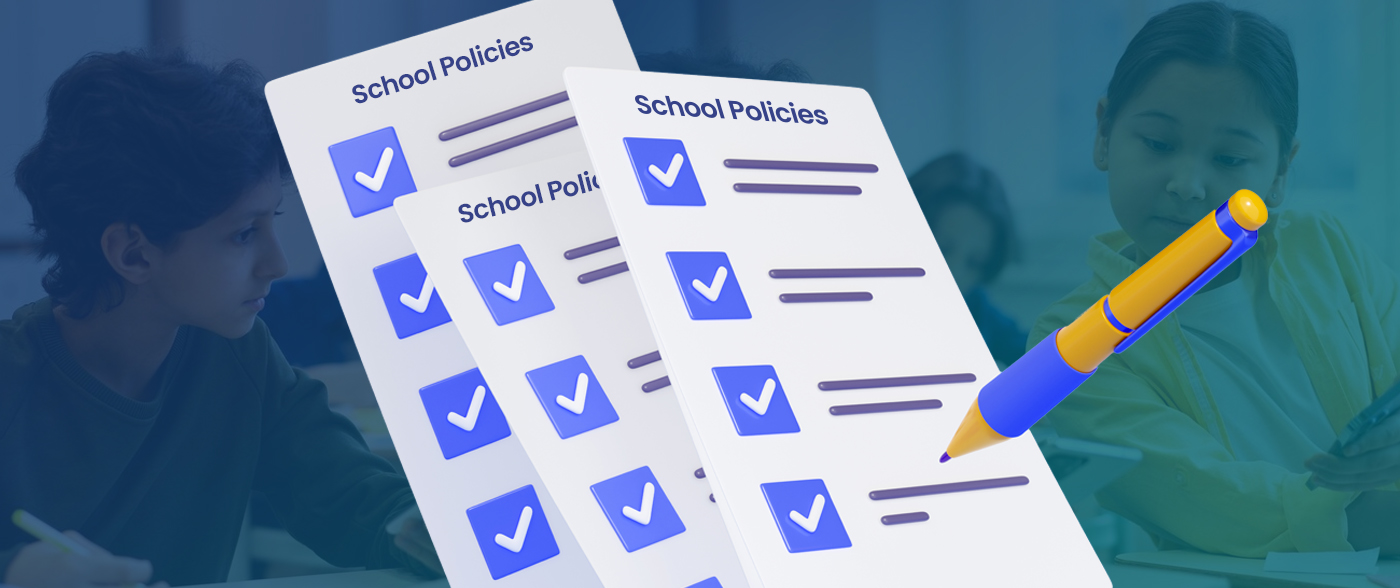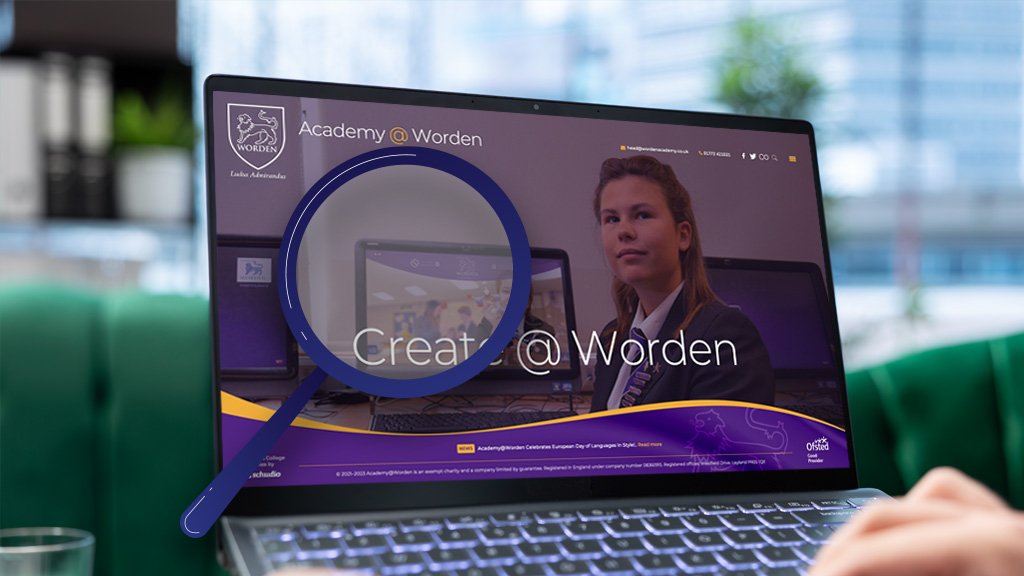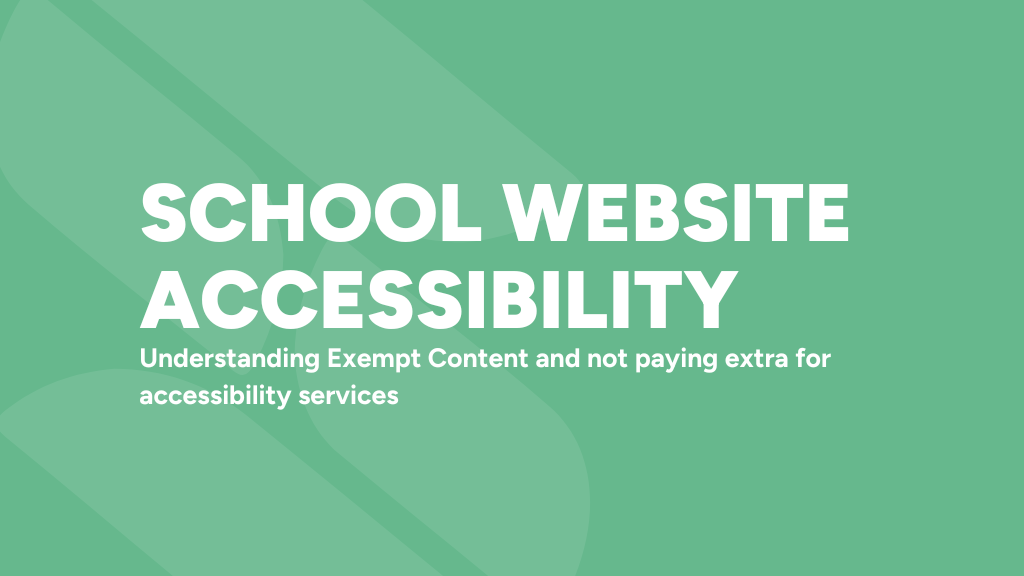Effective Policies in Schools: Enhancing Educational Outcomes and Safety
Effective Policies in Schools: Enhancing Educational Outcomes and Safety
Effective Policies in Schools: Enhancing Educational Outcomes and Safety

Wondering how policies in schools influence student success and safety? From establishing behaviour guidelines to complying with legal requirements, these rules are pivotal. Dive into our exploration of policies in schools to understand their direct impact on the educational environment and all its participants.
Key Takeaways
- School policies are vital in creating a secure and positive learning atmosphere by setting clear expectations for behaviour, safety, and academic standards, and they require regular reviews to ensure effectiveness and compliance with legal mandates.
- There are two main types of school policies: statutory, which are legally required and cover areas such as admissions and child protection; and discretionary, which are school-formulated to address specific needs and situations, such as curriculum differences and disciplinary approaches.
- Stakeholder involvement is essential for developing and implementing effective school policies; this includes engagement from staff, parents, students, and others to ensure policies are clear, accessible, and updated regularly to reflect current best practices and legal requirements.
The Role of School Policies in Education

Various education institutions, including independent schools, maintained schools, free schools, and further education institutions, rely heavily on school policies. They set clear expectations, thereby fostering a positive learning environment for both students and staff. Policies encompass aspects like pupil welfare, safeguarding, and teaching practices, directly influencing a secure and favourable learning environment.
They also attract new pupils, staff, and governors by showcasing the institution’s dedication to fostering a positive environment. Furthermore, policies ensure the consistent application of values, contributing to the overall effectiveness of the educational setting.
In the UK, schools are required to publish a full range of policies. Full details of these statutory requirements for policies in schools can be found in the Schudio School Website Requirements Guide.
Promoting a positive learning environment
By setting clear guidelines for behaviour and safety, along with a whole raft of other areas of school life, school policies create a positive learning environment. These policies include measures to:
- Prevent bullying and harassment among students
- Ensure safety during violent incidents
- Establish high academic expectations, which inspire students to excel
- Offer a structure for academic achievement, including crucial areas like sex education, special education needs and disabilities, and more.
Hence, proficient policies ensure safety, foster positive relationships between students and teachers, and uphold high academic standards, creating a more concentrated and engaging atmosphere for learning.
Types of School Policies: Statutory and Discretionary
Statutory and discretionary are the two main categories of school policies. Statutory policies, legally required, encompass areas like admissions, special educational needs, and child protection. Discretionary policies, on the other hand, are elective and formulated by schools to address particular issues.
Statutory Policies
Statutory policies, which are legally mandated, cover areas such as admissions, special educational needs, and child protection. Governing bodies or Trust directors ensure that these policies are developed, implemented, and regularly reviewed to meet the school’s requirements. These policies are usually reviewed annually to ensure their relevance and effectiveness.
In terms of the Early Years Foundation Stage (EYFS), both maintained nursery schools and non-maintained nursery schools are not obligated to establish distinct policies if the existing ones already fulfil the requirements.
Discretionary Policies
Unlike statutory policies that are mandated by legislation, discretionary policies are elective and implemented by schools to address their specific needs. These policies hold significance as they offer schools the flexibility to address specific needs and situations, such as curriculum nuances, disciplinary tools, and promoting discretionary effort among staff.
Schools assess their unique situations and determine the need for a discretionary policy, utilising their discernment and understanding of the specific issues within the school community.
Developing and Implementing School Policies

To ensure that school policies are comprehensive and meet the school’s needs, it’s important to involve various stakeholders, such as:
- staff
- parents
- students
- other community members
In their development and implementation of policies and procedures, schools must ensure that the policies are written in clear, concise language and are easily accessible. This may involve distributing policies in written formats, such as policy handbooks or through online platforms like the school website.
School policies should also undergo an annual review to ensure they are aligned with current best practices and legal requirements.
Involving stakeholders
To ensure that policies effectively address the needs of the school community, stakeholder engagement is necessary. This involves creating opportunities for students to address issues that are significant to them, such as relationship education, and collaborating with adults to evaluate their effectiveness.
Staff involvement also enhances the positive influence they have on students, facilitating active engagement in decision-making processes.
Clarity and accessibility
To ensure that their policies are easily understandable and accessible to all individuals involved, schools must:
- Ensure that the policies are written in clear, concise language
- Make the policies easily accessible, such as distributing them in written formats like policy handbooks or through online platforms like the school website
- Consider the needs of diverse stakeholders to avoid barriers to access
Regular review and updates
Regularly reviewing and updating school policies is of great significance as it ensures that the policies remain relevant and effective in addressing current issues and challenges within the school environment. The process for approval and review of statutory policies can be overseen by the governing body or management committee, or they may choose to delegate this responsibility to specific individuals or committees within the school.
The Schudio Document Manager, which is available as a standalone product or as part of all school website packages, does all this work for you. You will be notified when policies need reviewing and all policies can be managed centrally, making this part of a school’s role significantly easier.
Legal Considerations for School Policies

Laws including the Children Act 2004, Children and Young Persons Act 2008, Children and Families Act 2014, Education Act 2005, and Education and Skills Act 2008 must be adhered to by school policies, including the child protection policy.
Educational institutions can guarantee impartiality and equity in their policies by:
- Establishing unambiguous guidelines for the treatment of individuals
- Ensuring equal and fair treatment for all
- Fostering an all-encompassing environment
- Actively incorporating multicultural-themed resources
- Taking proactive measures to prevent any form of unlawful discrimination.
Compliance with education laws
To ensure legal compliance, school policies must adhere to:
- Relevant statutory guidance and regulations provided by the Department for Education
- Federal laws that impact educational accountability, governance, and contractual obligations
- Human rights laws
Additionally, they should align with these laws and regulations to ensure legal compliance.
Examples of school policies that are mandated to be in alignment with the Education Act include:
- Arrangements for pupils with medical conditions
- Admissions policies
- Curriculum policy
- Behaviour policy
- Special educational needs report
- Charging policy
Non-compliance with the written complaints procedure can, while extremely rare, lead to penalties, including the withholding of funding and potential legal proceedings. However, it is a crucial part of any inspection and so getting ahead of this vital part of your role is something you simply cannot ignore.
Ensuring fairness and equality
Instances of school policies that support the principles of fairness and equality include:
- School councils with diverse representation
- All-inclusive school activities
- Educational approaches that foster understanding of different cultures
- Activities and principles promoting equality in the classroom
- Principles of fairness and justice in educational content
School policies ensure equitable treatment of staff and students by delineating clear expectations for fair treatment through mechanisms such as behaviour and anti-bullying policies, and staff codes of conduct.
Communicating School Policies to Stakeholders

Various methods such as policy handbooks, the school website, and visual aids are used to communicate school policies to stakeholders. School policy handbooks are crucial for conveying the school’s ethos to parents and carers, providing valuable information, and being an effective tool for engaging parents with the school.
Schools should publish their policies on their school or college website due to the legal requirement for certain policies to be publicly available, and to ensure easy access for parents, prospective employees, and other stakeholders. DfE sets out a range of requirements that must be met and all of these can be found in the Schudio School Website Requirements Guide. This report is trusted by 1000s of UK schools every year.
Policy handbooks
A detailed compilation of school policies, policy handbooks can be disseminated to students, parents, and staff. The advantages of distribution encompass fostering unity within the school community, ensuring widespread awareness of expectations, and establishing a conducive learning environment.
An effective school policy handbook should incorporate clear components such as an attendance policy, bullying policy, cell phone policy, and establish clear expectations for student behavior.
School website
As an accessible platform for publishing and updating school policies, the school website ensures that stakeholders have easy access to the latest information. To guarantee the accessibility of school policies for all stakeholders, a school website can take steps such as:
- Reviewing and updating policies regularly
- Ensuring easy access to policies on the website
- Implementing measures such as a web accessibility coordinator and a corrective action plan for accessible content.
Part of the service and support that Schudio provides to all schools is the UK’s most valued and trusted support on this subject.
Visual aids and presentations
Visual aids contribute by:
- Condensing complex data into easily digestible formats
- Conveying messages that words alone may struggle to communicate
- Utilising visual supports to facilitate communication between the school and stakeholders, including students and parents.
In a presentation regarding school policies, it is imperative to include elements that clearly articulate expectations for students, promote safety measures, and foster a conducive learning environment.
Best Practices for Policy Implementation
Effective methods for training school staff in policy implementation include:
- Providing support
- Monitoring progress
- Problem-solving
- Adapting strategies
Leadership needs to be flexible and motivating, especially for early career teachers, and for initial training to be reinforced with follow-on coaching within the school.
The monitoring and evaluation of school policies are of paramount importance as they guarantee the effectiveness of each policy and its consistent assessment. Involving stakeholders in offering feedback is crucial during the monitoring and evaluation phase of school policy implementation.
Read more about how your school should be sharing your policies in this post.
Staff training
School leaders play a crucial role in advancing policy implementation by:
- Understanding teachers’ personal beliefs, perspectives, and backgrounds
- Encouraging teacher participation in policy initiatives
- Buffering teachers from external demands
- Building social networks
- Securing essential support for policy implementation
The essential elements of a well-organized staff training program for school policies consist of training, mentoring, supportive written material, and staff guidance.
Monitoring and evaluation
The most effective approaches for overseeing school policies involve regularly checking filtering and monitoring systems to ensure their effectiveness and application to all devices, as well as organising committees to carry out monitoring.
Schools can assess the effectiveness of their policies by soliciting feedback from their school community via the use of questionnaires. This approach aids in gauging the comprehension and efficient utilization of the policies, as well as identifying any potential adverse effects on staff well-being and workload.
Encouraging stakeholder feedback
Stakeholder feedback is critical in the enhancement of school policies. It contributes to:
- Accountability
- Quality improvement
- Relevance
- Collaboration
- Innovation
- Increased legitimacy and ownership
This feedback enables schools to gain a better understanding of needs and allocate resources effectively.
Schools can efficiently collect input on policies by utilizing various channels such as email, social media, and in-person meetings, and implementing techniques like surveys, interviews, focus groups, suggestion boxes, forums, blogs, and social media to achieve a high response rate.
Summary
In conclusion, school policies are the cornerstone of an effective education system, setting clear expectations, fostering a positive learning environment, and ensuring compliance with education laws. Communication of these policies through handbooks, school websites, and visual aids, coupled with regular monitoring, evaluation, and stakeholder feedback, ensures the policies remain relevant and effective. Let’s continue to strive for excellence in our educational institutions because every child deserves the best!
Frequently Asked Questions
What are policies in schools?
Policies in schools are designed to ensure that agreed values underpin day-to-day decisions and actions, addressing practical implications to achieve the school’s vision and governing interactions between the school, pupils, parents, and the community.
Why do schools have policies and procedures for student welfare?
Schools have policies and procedures for student welfare to provide a clear understanding of the school’s principles, raise standards, and communicate values effectively. These policies benefit governors, parents, staff, inspectors, and education authority officers.
What is the role of school leaders in policy implementation?
School leaders play a crucial role in advancing policy implementation by understanding teachers’ personal beliefs, perspectives, and backgrounds, encouraging teacher participation in policy initiatives, buffering teachers from external demands, building social networks, and securing essential supports for policy implementation. This creates a framework for successful policy implementation in schools.
How are school policies communicated to stakeholders?
School policies are communicated to stakeholders through methods like policy handbooks, the school website, and visual aids, ensuring that everyone is informed about the guidelines and regulations.
Your next step is to download the Schudio School Website Requirements Guide which provides in-depth understanding and step by step instructions on every one of the requirements set by DfE and is continually updated.








